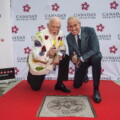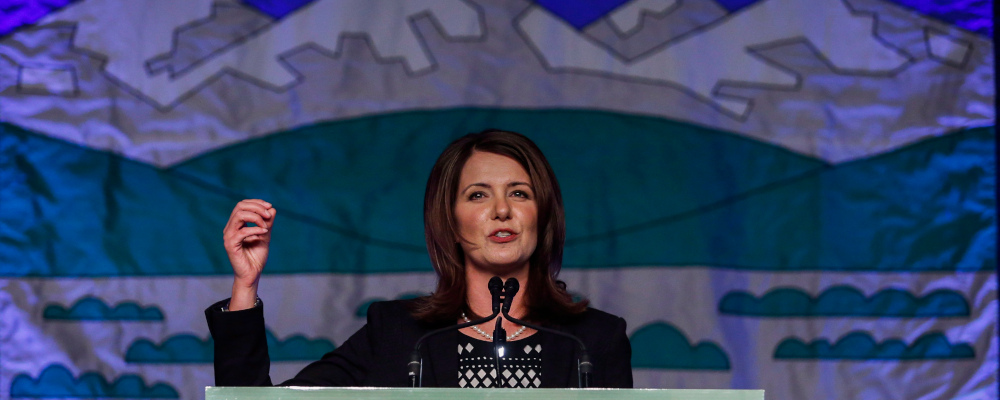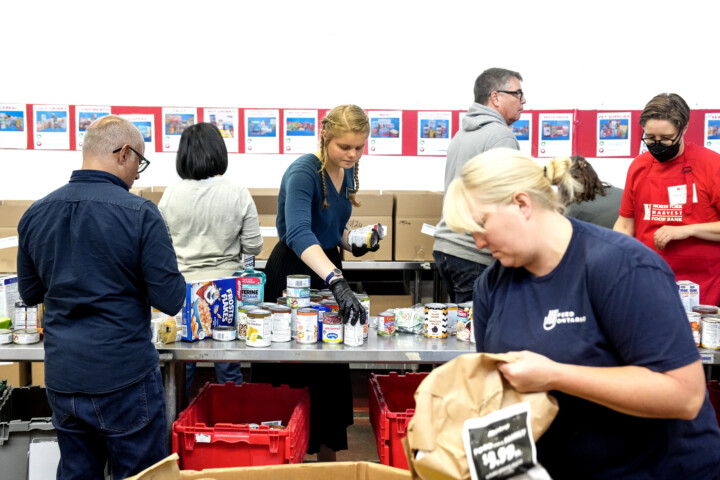The Alberta Sovereignty Act is a scam. It’s baloney, bunk, balderdash, and bunkum. Hooey, hogwash, and hokum. Flim-flam, tommyrot, poppycock, and fiddle. It’s the political equivalent of a sideshow tent painted with lurid images of wonders never before beheld by human eyes. And, like any successful carnival curio, it depends on the willingness of the marks to believe the unbelievable.
In the sideshow, dim-lighting and deft patter create the atmosphere, but it’s the patrons’ desire to be deceived that lets them see a mermaid rather than a mangy monkey-torso artfully attached to half a dried fish. The same is true for the Alberta Sovereignty Act—a political and legal hoax that has become the signature policy of the frontrunner to be the next premier of Alberta.
For those who don’t follow Alberta politics, the Alberta Sovereignty Act is the centrepiece of a broader Free Alberta strategyThe Free Alberta Strategy https://www.freealbertastrategy.com/the_strategy that has two stated goals: “Establishing complete Provincial Legislative Sovereignty within Canada” and “Ending Equalization and Net Federal Transfers out of Alberta.” Notably—and this is the strategy’s novelty—it doesn’t ask permission from Ottawa or any other province. It just asserts whatever powers are necessary to protect the province’s interests, whether they are constitutional or not.
The appeal to many Albertans is obvious. The Free Alberta strategy claims to be a solution to the hitherto insoluble problem of how Alberta can get everything it wants from Ottawa without actually separating from Canada. It appears to square the circle of independence without secession. Best of all, it lets Albertans claim what is rightfully theirs (or what they would like to be rightfully theirs) without having to go begging to Ottawa or to BC or Quebec or the Maritimes.
At the heart of the strategy are two radical proposals.About the Free Alberta strategy https://d3n8a8pro7vhmx.cloudfront.net/albertainstitute/pages/337/attachments/original/1637104983/Free_Alberta_Strategy_-_Web_Version.pdf?1637104983 The first is the Alberta Sovereignty Act, which would prohibit government employees from enforcing federal laws or court decisions that, in the opinion of the provincial legislature, exceed Ottawa’s constitutional jurisdiction or, more vaguely, “unfairly attack the interests of Alberta’s People.” The second is to effectively opt-out of the Canadian judicial system. Both ideas are, to use a technical term from constitutional law, nuttier than a squirrel turd.
The strategy’s authors know, of course, that this would be flagrantly unconstitutional—for them, that is its major selling point.The Alberta sovereignty act is unconstitutional on purpose https://nationalpost.com/opinion/barry-cooper-the-alberta-sovereignty-act-is-unconstitutional-on-purpose They believe that forcing a constitutional crisis is the only way to remedy the ongoing constitutional injustice that Alberta suffers under the current system. It is a deliberately brute assertion of political power intended to cut the constitutional Gordian knot. But even on these dubious political terms, the Alberta Sovereignty Act is a dead end. Unconstitutionality aside, the Act is unworkable.
The provincial government can’t just tell public servants not to enforce the law or individuals that they won’t face any consequences for acting illegally. It can’t tell businesses and employees they don’t have to remit taxes that they legally owe. It is one thing for eccentric academics and aspiring politicians to fantasize about ad hoc independence, but the Alberta Sovereignty Act would put all the real legal risk—CRA fines, court orders, and legal penalties—on ordinary people and local businesses. It asks too much of individuals to shoulder the burden of this constitutional frolic.
The Act would be an economic disaster. What business would trust a government that doesn’t recognize constitutionally-appointed judges and is committed to making up the law as it goes along? There is a reason rogue states aren’t exactly magnets for foreign investment. Companies would relocate their headquarters out of Alberta faster than they moved from Montreal to Toronto in the 1970s when Quebec separatism was ascendent. The Act’s answer to this anticipated chaos is to create a new Alberta-based banking industry, but that would just leave all Albertans on the hook financially for the government’s risks.
Albertans have genuine economic grievances. They contribute billions of dollars more each year to the rest of Canada than they get back and, in return, the governments that benefit from their largesse conspire to shut down Alberta’s most valuable industry. And successive federal governments have used provincial transfer payments to curry favour with vote-rich provinces at Alberta’s expense. That’s frustrating, but it’s no excuse for making the situation worse. There is a perverse irony in a policy responding to economic frustration that, if implemented, would bring economic ruin.
Until recently, the Free Alberta plan and the Alberta Sovereignty Act were just obscure thought experiments with a website. But now that Danielle Smith has endorsed it,Alberta UCP leadership candidate Danielle Smith promises immediate sovereignty act https://edmonton.ctvnews.ca/alberta-ucp-leadership-candidate-danielle-smith-promises-immediate-sovereignty-act-1.5960598 we have to take this deeply unserious idea seriously. I like Smith. She is smart, curious, and refreshingly open-minded about politics and policy. What made her radio show (on which I was an occasional guest) so good was her willingness to listen to and debate almost anyone about almost anything. Sometimes this meant indulging cranks and kooks, but more often it resulted in stimulating conversations that challenged the narrow elite Canadian consensus.
The Alberta Sovereignty Act comes straight out of the camp of the cranks and kooks. Promises of police forces that won’t enforce the law and a parallel court system that will apply a parallel constitution are just the latest in a long tradition of Prairie snake oil. You can file the Act alongside Social Credit’s “funny money” Prosperity Certificates.
There is a hypnotic power to wishful thinking. We all want to be persuaded of the truth of what we want to see and hear, even when deep down we know it is too good to be true. That is why carnival barkers will always draw crowds to pay to be amazed by what, in the clear light of day, would be transparent fakery. And it is why politicians have to be careful to keep their rhetoric in line with reality.
Because, in a sideshow, the deception leaves its victims a little poorer but harmlessly entertained; but in politics, scams like the Alberta Sovereignty Act have real-life consequences. If Smith or any other leader is foolish enough to follow this fraudulent scheme, real jobs will be lost and real people will suffer. It will be the Alberta Suicide Act.
Recommended for You
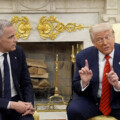
The Supreme Court slaps down Trump’s tariffs—but Canada isn’t in the clear yet: The Weekly Wrap
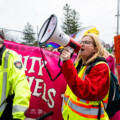
Why Ottawa’s proposed hate speech law is proving so controversial
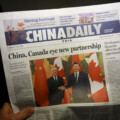
‘They will walk all over us’: Former security analyst on how Canada is leaving itself open to more Chinese interference
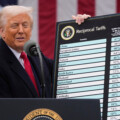
‘Huge implications’: The Roundtable on the U.S. Supreme Court’s bombshell tariff ruling against Trump
